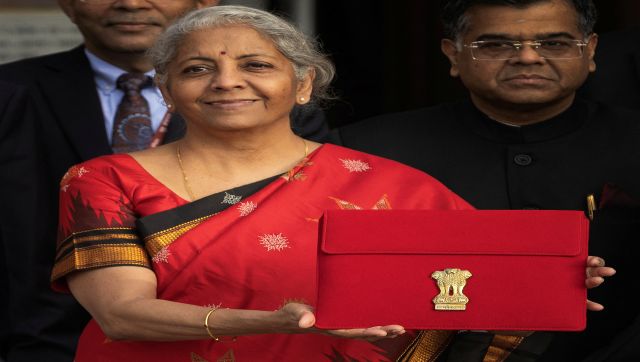Union Finance Minister Nirmala Sitharaman will present her sixth budget on 1 February. However, instead of a full budget, she will present an interim budget as the Lok Sabha elections are due to take place in a few months. The interim budget will be presented in a joint sitting of Parliament, while the full budget will be presented after a new government takes over following general elections that are due in April-May this year, according to NDTV. Let’s take a closer look. Meaning of interim budget An interim budget is a short-term financial plan that covers government expenses until a new government takes charge after elections, the news channel explained. The regular budget process may be interrupted during election years by the shifting of power. To guarantee that government operations and key services run smoothly until the next administration assumes control, the departing government prepares an interim budget, as per another report by NDTV Profit. According to Hindustan Times, as part of it, the Parliament passes a vote-on-account to pay for necessary expenses, such as funding ongoing government initiatives and paying salaries of central government employees. Normally, a vote-on-account is good for two months, although it can be extended if necessary. The present government’s ability to spend money is limited to the Union Budget’s validity through 31 March. The current government needs approval from Parliament to cover charges for any expenses incurred between 1 March and the establishment of a new government. A vote-on-account, as defined by Article 116 of the Constitution, represents an advance payment to the government from the “Consolidated Fund of India,” which is set aside specifically for meeting immediate expenditure requirements. All of the money collected by the central government—taxes, loan interest, and other revenues—is placed in the Consolidated Fund of India. The last interim budget was presented in 2019 by Piyush Goyal, holding additional charge of the ministry of finance after Arun Jaitley fell ill. After the BJP government secured a second consecutive term, Sitharaman was appointed as the finance minister, and she presented the full budget on 5 July 2019. On 1 February, she will present an interim budget for 2024–25 in Parliament, which will be effective from 1 April 2024. Key aspects of an interim budget Under an interim budget, funds are usually allocated for ongoing programmes, pressing needs, and necessary government activities. There are no new policies or programmes introduced that could have a big financial impact. To prevent undue influence on voters, the Election Commission of India has put some constraints on interim budgets. The government cannot propose significant tax increases or policy changes in the budget to influence voters in favour of the current regime, according to Business Today. Parliament does not examine and discuss the interim budget in the same way as usual. It requires a vote-on-account to seek approval for funds. Difference between interim and Union budget The interim budget will outline the government’s anticipated revenues and expenses until the new government is formed. A comprehensive budget, on the other hand, covers every aspect of government finances, including revenues, expenditures, allocations, and policy statements. The Union budget, which highlights the government’s commitment to numerous initiatives and changes, frequently affects investor mood. It has the power to influence market expectations and economic activity. A full-year budget, which maps out the country’s economic course for a full fiscal year, is a strategic tool, whereas the interim budget offers financial information for the temporal period. Governments also refrain from presenting the traditional pre-budget “Economic Survey,” which is often done the day before the formal budget presentation, before the vote-on-account. This report, which summarises the major events and economic situation, is usually delivered in Parliament in July together with the entire budget. A full budget will be presented by the new government in July this year, in anticipation of the Lok Sabha elections in April or May 2024. No major announcements In December last year, Sitharaman ruled out any “spectacular announcement” for her budget for the upcoming Thursday. She said saying it would simply be a “vote on account” before the general elections. “I am not going to play a spoilsport but it is a matter of truth that the 1 February budget will just be a vote on account. We are in an election mode, and the elections happens during the coming summer. So, the budget that the government presents will just be able to, or will just be a Budget to meet the expenditure of the government till a new government comes into play,” the minister said in response to a question about a “supercharged budget” during her address at the CII Global Economic Policy Forum, according to an NDTV report. “The budget, following British tradition, is called a vote on account. So, no spectacular announcements come in that time. So you will have to wait till after the new government comes in and presents the next full budget in July 2024,” she added. With inputs from agencies
Finance Minister Nirmala Sitharaman will present the interim budget for 2024-25 on 1 February. An interim budget is a short-term financial plan covering government expenditures until a new government takes over after the elections
Advertisement
End of Article


)

)
)
)
)
)
)
)
)



